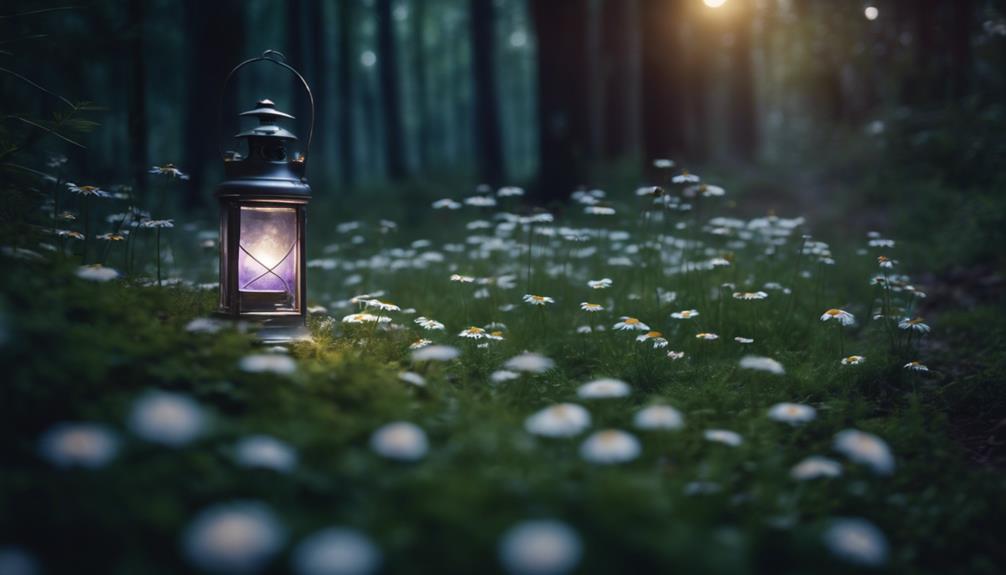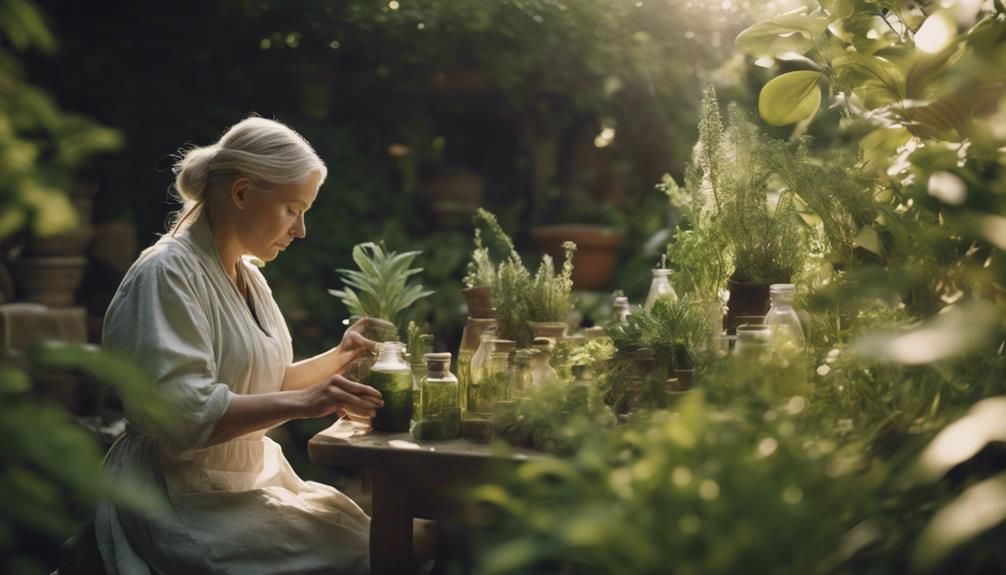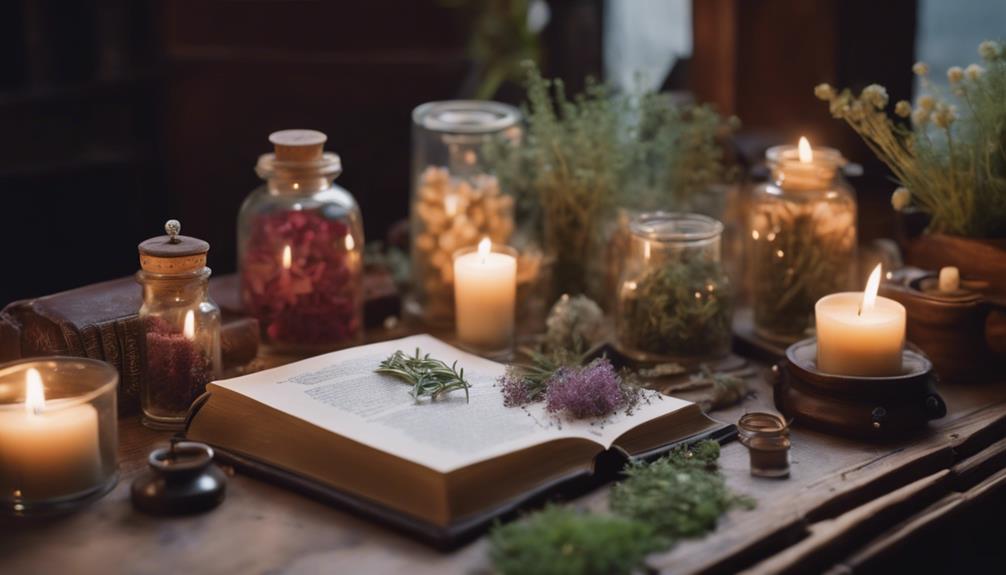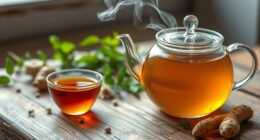You're about to start on a journey that weaves together ancient wisdom, natural remedies, and a deep connection with the natural world. To begin, immerse yourself in herbology's significance and historical context. Educate yourself through books and courses, and explore the importance of understanding herbology's roots. Create a hands-on experience by initiating a herb garden. As you progress, you'll need essential tools and resources, like field guides and harvesting equipment. Remember to prioritize safety and ethical considerations, and explore educational pathways and certification options. As you continue, you'll uncover the many ways herbology can integrate into daily life, from alleviating ailments to enhancing beauty routines.
Key Takeaways
• Immerse yourself in herbology by understanding its significance, historical context, and roots to establish a strong foundation.
• Educate yourself through books by renowned herbalists, courses, and hands-on experience in a herb garden.
• Invest in essential tools like field guides, magnifying glasses, and harvesting equipment to ensure safe and effective practices.
• Prioritize safety and ethical considerations, such as correct plant identification, sustainable harvesting, and respectful practices.
• Pursue formal or alternative educational pathways, including certification, to gain a comprehensive understanding of herbology and its practical applications.
Getting Started in Herbology
Immerse yourself in the world of herbology by understanding its significance and historical context, and begin by educating yourself through books written by renowned herbalists.
As you explore this ancient practice, you'll discover the importance of understanding the roots of herbology.
Enroll in courses that provide structured learning, and start a herb garden to gain hands-on experience.
Join online communities and forums to connect with like-minded individuals and learn from their experiences.
By taking these initial steps, you'll set a strong foundation for your herbology journey.
Essential Tools and Resources
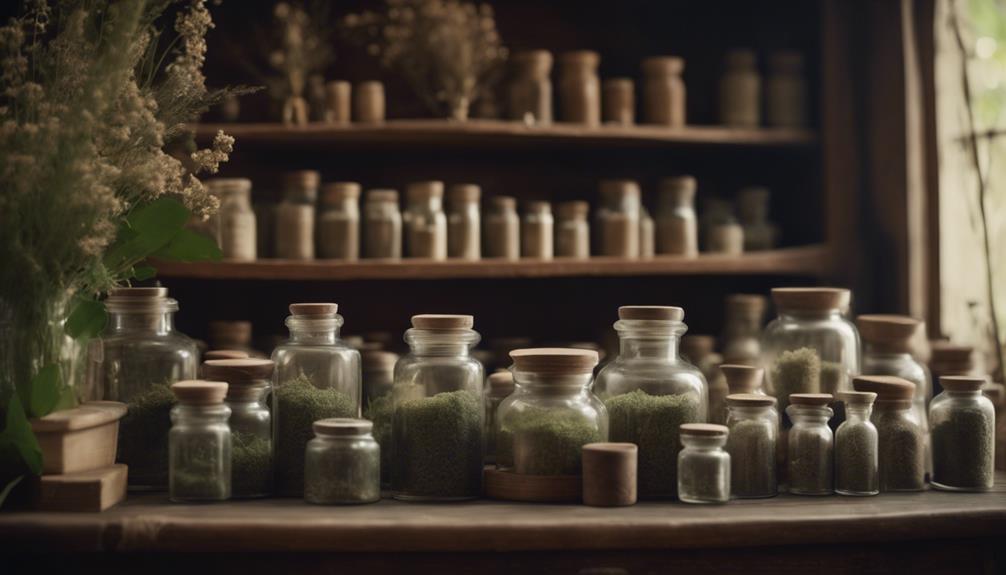
As you explore the world of herbology, you'll quickly realize that having the right tools and resources is essential to identifying, preparing, and utilizing medicinal plants effectively. You'll need field guides to identify plants, magnifying glasses to examine them closely, and field journals to record your observations.
Harvesting tools, gathering supplies, and processing equipment are also vital for preparing medicinal herbs. Educational resources like books, online courses, and workshops provide a solid foundation in herbology. Having access to these tools and resources will empower you to navigate the world of herbology with confidence and precision.
Safety and Ethical Considerations
Correctly identify plants before harvesting to avoid toxicity, and always prioritize caution when working with medicinal herbs to guarantee your safety and the well-being of those you're helping.
You'll want to use proper tools and techniques to prevent over-harvesting, respecting local guidelines for sustainable wild harvesting.
Cultivate a respectful relationship with nature through ethical practices, understanding regulations and potential side effects in herbal practice.
Be aware of local laws and regulations regarding herb use, and stay informed about potential interactions with medications or health conditions.
Educational Pathways and Certification

Pursue formal education or alternative routes to develop your skills and knowledge in herbology, taking the first step towards becoming a certified herbalist.
You can choose from formal programs, online courses, apprenticeships, or self-study. Attending colleges or universities provides a strong scientific foundation, while practical experience through apprenticeships is essential. Certification from organizations like AHG or NIMH validates your expertise.
Formal education is vital for serious herbology pursuits. Consider enrolling in programs that offer diplomas or degrees in herbalism, or pursue online courses that focus on specific areas like herbal medicine or aromatherapy. Remember, certification is key to establishing credibility and building trust with clients.
Practical Applications and Integration
You'll find that herbology seamlessly integrates into daily life, enhancing well-being and promoting sustainability in various ways. By incorporating herbs into your daily routine, you can alleviate ailments, enrich meals with flavor and nutrients, and even improve mental and emotional wellness.
Herbology can also enhance your beauty routine, providing natural remedies for skin and hair care. Additionally, it can promote eco-friendliness by reducing reliance on chemical-laden products.
As you continue on this journey, you'll discover the numerous ways herbology can enrich your life with natural goodness. By embracing herbology, you'll not only improve your own well-being but also contribute to a more sustainable future.
Frequently Asked Questions
Can I Practice Herbology if I Have a Medical Condition Myself?
You're wondering if you can practice herbology despite having a medical condition yourself. The answer is yes, but with caution. As a herbalist, you'll need to prioritize your own health and take necessary precautions.
Be honest with your clients about your limitations and avoid working with clients who've conditions similar to yours.
Always consult with a healthcare professional if you're unsure about any herbal remedies or interactions with your medication.
How Do I Balance Herbalism With Conventional Medical Treatment?
As you explore herbalism, you'll need to balance it with conventional medical treatment. Start by consulting your doctor or healthcare provider about combining herbal remedies with your existing treatment plan.
Be open about your herbal practices and any medications you're taking. This will help you avoid potential interactions and guarantee safe, effective care.
Are There Any Age Restrictions for Becoming an Herbalist?
You might think age is a barrier to becoming an herbalist, but ironically, it's never too late (or early) to start.
There are no specific age restrictions for pursuing a career in herbalism. Whether you're a young enthusiast or a seasoned professional, what matters most is your passion for learning and dedication to the craft.
Can I Use Herbology to Treat Pets or Animals?
You're wondering if you can use herbology to treat pets or animals. The answer is yes! Herbalism can be applied to veterinary care, and many herbalists specialize in animal health.
You can learn to create natural remedies for common pet ailments, such as skin issues or digestive problems. However, consulting with a veterinarian before using herbal treatments on animals is crucial for safe and effective care.
Do I Need a Business License to Sell Herbal Remedies?
As you venture into the domain of selling herbal remedies, you'll need to navigate the world of business licenses.
Yes, you'll typically need a license to sell herbal remedies, especially if you're planning to operate a commercial business.
Requirements vary by state and locality, so research the specific regulations in your area.
Don't assume you can fly under the radar – obtaining the necessary licenses will help you avoid legal issues and build trust with your customers.
Conclusion
As you step onto the threshold of the herbalist's path, the world of natural wonders beckons. Like a master weaver, you'll intertwine threads of ancient wisdom, practical skills, and modern applications to create a rich tapestry of knowledge.
With each step, the boundaries of health, wellness, and sustainability will blur, revealing a profound connection between nature and human health.
Start on this transformative journey, and the intricate harmony of the natural world will unfold before you, a treasure trove of wisdom waiting to be discovered.

